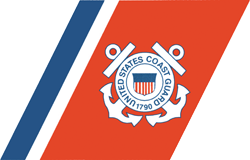Proposed Rulemaking on Cruise Ship Terminal Security
The Federal Register Wednesday published the U.S. Coast Guard’s notice of proposed rulemaking amending its regulations on cruise ship terminal security.
This proposed rule would standardize screening activities for all persons, baggage and personal effects at cruise ship terminals while also allowing an appropriate degree of flexibility that accommodates and is consistent with different terminal sizes and operations.
This flexible standardization ensures a consistent layer of security at terminals throughout the United States. This proposed rule builds upon existing facility requirements in 33 CFR part 105, which implements the Maritime Transportation Security Act, Pub. L. 107-295, 116 Stat. 2064 (November 25, 2002), codified at 46 U.S. Code chapter 701. The Coast Guard consulted with the Transportation Security Administration during the development of this proposed rule.
The Coast Guard also proposes to remove 33 CFR parts 120 and 128 because provisions in those parts requiring security officers and security plans or programs for cruise ships and cruise ship terminals would be redundant with the provisions in 33 CFR subchapter H. Section 120.220, concerning the reporting of unlawful acts, would also be removed because it is obsolete and existing law enforcement protocols require members of the Cruise Lines International Association (CLIA) to report incidents involving serious violations of U.S. law to the nearest Federal Bureau of Investigation field office as soon as possible. The Coast Guard will consider issuing additional regulations on this subject in a separate rulemaking pursuant to the Cruise Vessel Security and Safety Act of 2010 (CVSSA), Pub. L. 111-207 (July 27, 2010).
This proposed rule does not address the screening of vessel stores, bunkers or cargo. Requirements for the delivery of vessel stores, bunkers and cargo exist and may be found in 33 CFR 104.275, 104.280, 105.265 and 105.270.

















